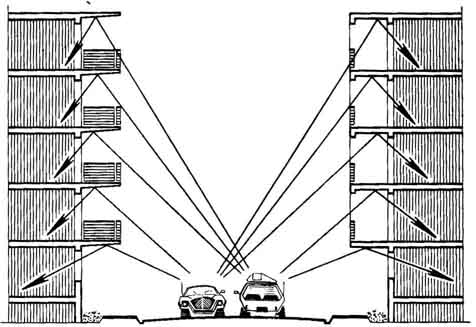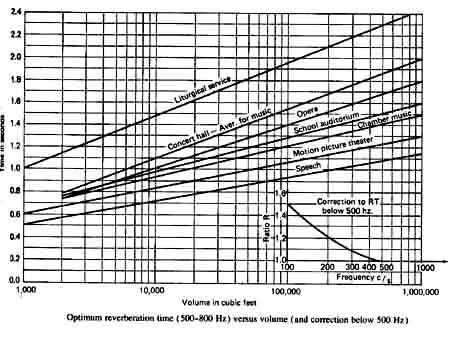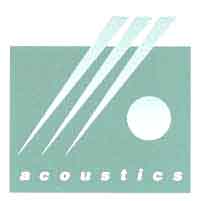|
|
- Buildings Site Study
 Special sound isolation measures for exterior walls, windows, doors and roofs often are required for buildings that are exposed to heavy traffic, or are located near trains, airports, or noisy industrial and commercial sites. A Acoustics determines sound isolation requirements by calculating the difference between outside and inside building noise levels. We then make recommendations and specify modifications to reduce the effects of noise. In addition, we evaluate site-generated exterior noise resulting from such factors as rooftop air conditioning systems, cooling towers, and traffic, and recommend solutions that mitigate impacts to the surrounding community. Special sound isolation measures for exterior walls, windows, doors and roofs often are required for buildings that are exposed to heavy traffic, or are located near trains, airports, or noisy industrial and commercial sites. A Acoustics determines sound isolation requirements by calculating the difference between outside and inside building noise levels. We then make recommendations and specify modifications to reduce the effects of noise. In addition, we evaluate site-generated exterior noise resulting from such factors as rooftop air conditioning systems, cooling towers, and traffic, and recommend solutions that mitigate impacts to the surrounding community.
- Interior Sound Study

The Uniform Building Code (UBC) requires architects to meet minimum acoustical standards for the construction of partitions and floors. However, property owners frequently discover that building codes for both multi-family residences and office complexes are inadequate to effectively isolate noise and vibration from one unit to the next or within individual units.
Because correcting code deficiencies in a completed structure can require costly and disruptive structural redesign, A Acoustics recommends and performs Interior Sound Studies before construction begins. By reviewing plans and specifications, we can pinpoint potential problem areas and recommend effective redesigns that ensure noise and vibration will be minimized
- Room Acoustics Study

When not properly designed, large halls, theaters, churches, and meeting rooms can exhibit a variety of acoustical problems, including echoing, booming, and high ambient noise levels. Many of these problems can be predicted and measured through reverberation time studies, which establish sound decay time in an enclosed area. Desirable reverberation time allows frequency components to grow and decay at rates that support high speech intelligibility and the rich enjoyment of music.
A Acoustics performs Room Acoustics Studies that identify and quantify reverberation time problems, and recommends appropriate structural modifications to obtain optimal sound absorption, reflection, and diffusion rates.
|







 Special sound isolation measures for exterior walls, windows, doors and roofs often are required for buildings that are exposed to heavy traffic, or are located near trains, airports, or noisy industrial and commercial sites. A Acoustics determines sound isolation requirements by calculating the difference between outside and inside building noise levels. We then make recommendations and specify modifications to reduce the effects of noise. In addition, we evaluate site-generated exterior noise resulting from such factors as rooftop air conditioning systems, cooling towers, and traffic, and recommend solutions that mitigate impacts to the surrounding community.
Special sound isolation measures for exterior walls, windows, doors and roofs often are required for buildings that are exposed to heavy traffic, or are located near trains, airports, or noisy industrial and commercial sites. A Acoustics determines sound isolation requirements by calculating the difference between outside and inside building noise levels. We then make recommendations and specify modifications to reduce the effects of noise. In addition, we evaluate site-generated exterior noise resulting from such factors as rooftop air conditioning systems, cooling towers, and traffic, and recommend solutions that mitigate impacts to the surrounding community.